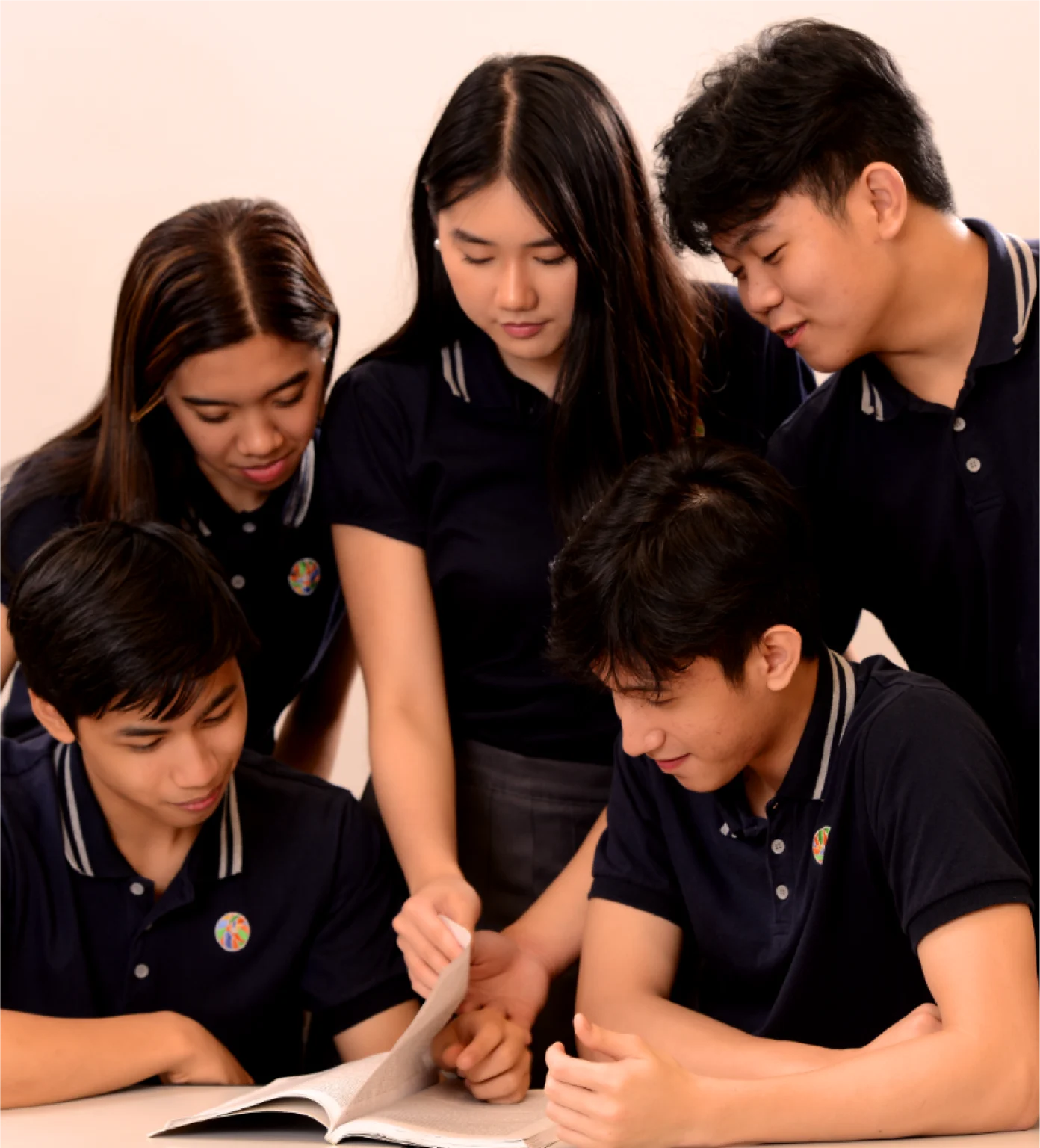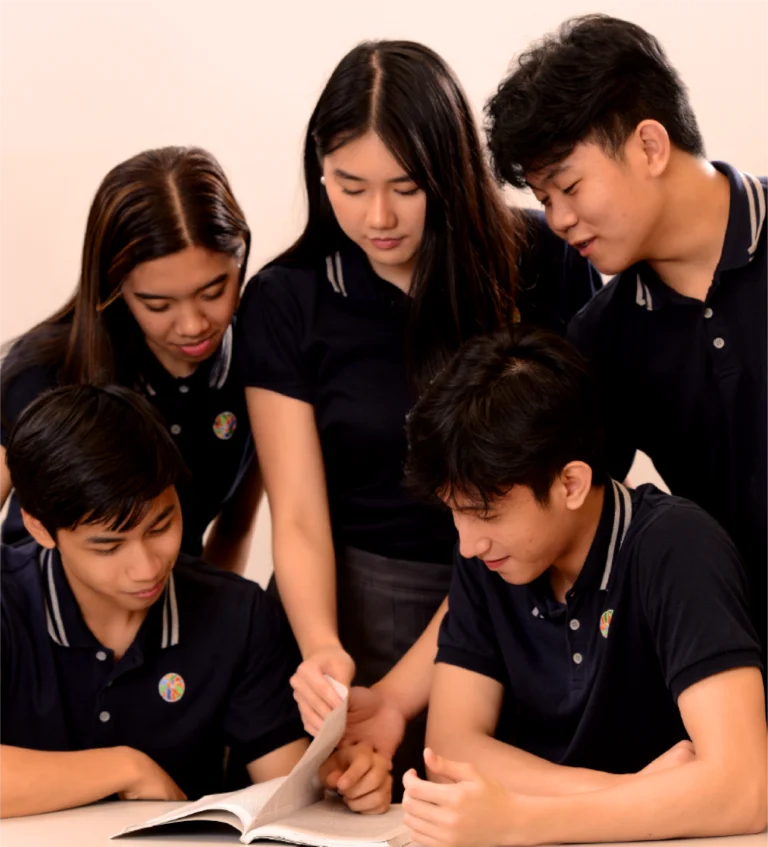International Baccalaureate (IB) Diploma Programme
INCORPORATING THE IB DIPLOMA PROGRAM INTO LIFE ACADEMY'S GOSPEL-CENTERED CORE
At Life Academy, our mission is clear: to nurture God-loving, inquiring, knowledgeable, and compassionate students. We achieve this by integrating Christian values into our curriculum, using the International Baccalaureate Diploma Program as a powerful tool to meet world-class teaching standards. Discover how our programs seamlessly integrate these values into every aspect of our students’ education!

IB Programme
IB education is unique because of its rigorous academic and personal standards. The IB programmes challenge students to excel not only in their studies, but also in their personal growth. It aims to inspire a lifelong quest for learning hallmarked by enthusiasm and empathy. To that end, the IB gathers a worldwide community of supporters who celebrate our common humanity and who share a belief that education can help to build a better world.

IB Programme
IB education is unique because of its rigorous academic and personal standards. The IB programmes challenge students to excel not only in their studies, but also in their personal growth. It aims to inspire a lifelong quest for learning hallmarked by enthusiasm and empathy. To that end, the IB gathers a worldwide community of supporters who celebrate our common humanity and who share a belief that education can help to build a better world.
The IB connects this higher purpose with the practical details of teaching and learning. A global community of IB World Schools put these principles into practice, developing standards for high-quality education to which they hold themselves mutually accountable. An IB education represents a testament to the power of this collaboration.
Education is an act of hope in the face of an always-uncertain future. An IB education calls forth the very best in students and educators alike. The IB believes that together we can help to prepare students for living and working in a complex, highly interconnected world.
The IB Learner
The IBDP aims to increase access to the curriculum and engagement in learning for all students. Learning communities become more inclusive as they identify and remove barriers to learning and participation. Commitment to access and inclusion represents the IB learner profile in action.
Informed by these values, an IBDP education: - centers on learners;
- develops effective approaches to teaching and learning;
- works within global contexts; and
- explores significant content.
IBDP Groups
The IBDP is a balance between the desirability of a broad education and the need to allow some specialization. In all subjects, the emphasis is on the development of skills and learning how to learn, in addition to mastery of subject content. To achieve a broad and balanced programme, the student must choose one subject from each of these six groups:
Language and Literature
Language
Acquisition
Individuals and Societies
Experimental Sciences
Mathematics
The Arts
Language and Literature
Language Acquisition
Individuals and Societies
Experimental Sciences
Mathematics
The Arts
IBDP Requirements:
Students must choose three subjects for study in greater depth at Higher Level (HL) and three subjects for study in somewhat lesser depth at Standard Level (SL). In addition to the above subjects, the Diploma student must complete these three additional parts of the Diploma requirements:
Creativity, Activity, Service (CAS) involves students in a range of activities alongside their academic studies throughout the Diploma Programme. The three strands of CAS, which are often interwoven with particular activities, are characterized as follows:
Creativity: arts and other experiences that involve creative thinking
Activity: physical exertion contributing to a healthy lifestyle, complementing work elsewhere in the Diploma Programme Service: an unpaid and voluntary exchange that has a learning benefit for the student Students are able to use their extracurricular participation in sport, music, and drama productions to fulfill their CAS requirements.
The student will undertake original research and write an Extended Essay (EE) of some 4,000 words. This project offers the opportunity to investigate a topic of special interest and acquaints students with the kind of independent research and writing skills expected at university.
This is an interdisciplinary course intended to stimulate critical reflection upon the knowledge and experience gained inside and outside the classroom. TOK challenges students to question the bases of knowledge, to be aware of subjective and ideological biases, and to develop a personal mode of thought based on analysis of evidence expressed in rational argument.
No Headers
Creativity, Activity, Service (CAS) involves students in a range of activities alongside their academic studies throughout the Diploma Programme. The three strands of CAS, which are often interwoven with particular activities, are characterized as follows:
Creativity: arts and other experiences that involve creative thinking
Activity: physical exertion contributing to a healthy lifestyle, complementing work elsewhere in the Diploma Programme Service: an unpaid and voluntary exchange that has a learning benefit for the student Students are able to use their extracurricular participation in sport, music, and drama productions to fulfill their CAS requirements.
Extended Essay (EE)
The student will undertake original research and write an Extended Essay (EE) of some 4,000 words. This project offers the opportunity to investigate a topic of special interest and acquaints students with the kind of independent research and writing skills expected at university.
Theory of Knowledge (TOK)
This is an interdisciplinary course intended to stimulate critical reflection upon the knowledge and experience gained inside and outside the classroom. TOK challenges students to question the bases of knowledge, to be aware of subjective and ideological biases, and to develop a personal mode of thought based on analysis of evidence expressed in rational argument.